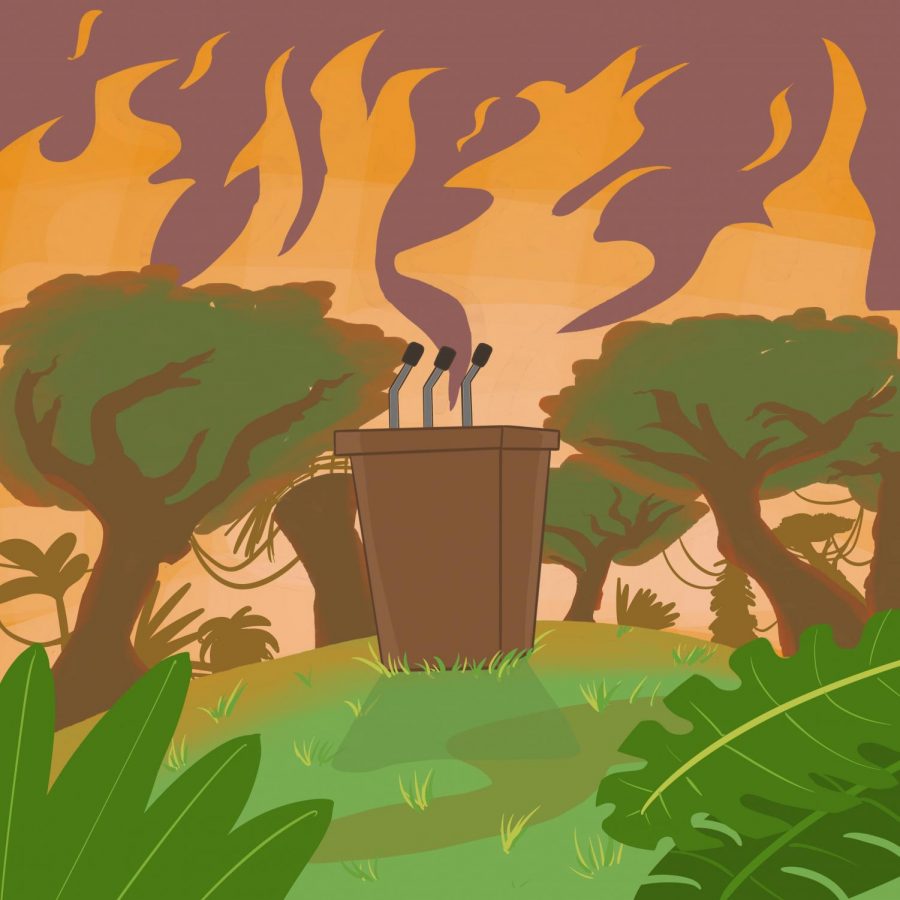Why is the Amazon rainforest really burning?
(Did populism strike the match?)
The increased burning and deforestation of the Amazon represents a global problem. With the rise of populist rhetoric hindering diplomatic solutions, could the flames represent a new reality to a changing international order? (graphic by: Jessica Tapia)
September 6, 2019
The Amazon rainforest is the lungs of our planet, and those lungs are on fire.
Take economic inequality, a disenfranchised people, seething nationalism, distrust of globalization and international diplomacy, and wait for the spark of a populist to light the match.
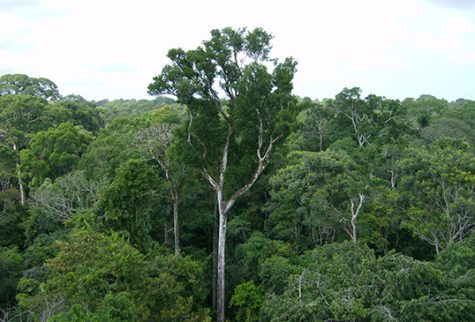
After U.S. President Donald Trump insisted world leaders reject globalism and focus on domestic affairs at last year’s U.N. meeting, many who fear the collapse of international order say it shouldn’t come as a surprise more populists have come to the diplomatic table carrying kerosene?
Far-right Brazilian President Jair Bolsonaro has temporarily rejected a $22 million G-7 intergovernmental offer to aid combatting the forest fires and fund reforestation. Media has cited a personal spat with French President Emmanuel Macron over Bolsonaro denying climate change.
Both abroad and from her hometown of Sao Paulo, Brazil, College of DuPage student Larissa Ferfoglia has witnessed the dangers a populist president can represent.
“It’s like having a 14-year old as president,” said Ferfoglia. “He’s constantly on Twitter making negative comments about everybody. Instead of doing what’s best for Brazilian citizens, Bolsonaro is just following Trump’s footsteps.”
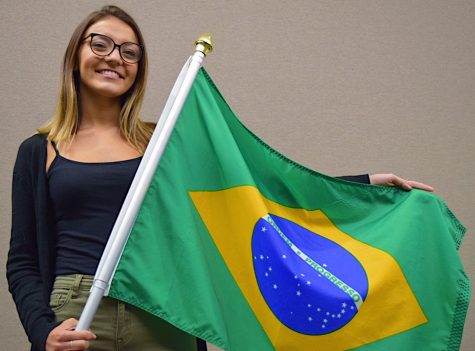
Bolsonaro has followed through on campaign promises to decrease environmental regulations and fines, providing initiative for loggers, miners, cattle ranchers and soybean farmers to burn and deforest the Amazon. He accuses foreign leaders of wanting to gain control over the Amazon’s lucrative natural resources and infringe on what he sees as Brazil’s sovereign right to protect. He has stated, “Brazil is like a virgin that every pervert from the outside lusts for.”
Ferfoglia fears certain citizens’ distrust of the political elite permitted the election of a populist who has no respect for democratic institutions and openly supports torture. She likened his campaign to Trump selling himself as tough on crime and illegal immigration while preaching about a lost golden age.
“Bolsonaro campaigned on exactly the same thing,” said Ferfoglia. “Brazilians lived under a military dictatorship (1964-85). He served in the military and calls to return to those days. He points out the increases in GDP at the time, but at what cost? Thousands were imprisoned and tortured.”
COD Political Science Professor Maureen Ponicki believes the examples of populist trends in the U.S., Brazil, Hungary, Italy, Austria and France show that while its roots may lie domestically, global forces can spur the phenomenon.
“Many argue the seeds of populism can be found in the political elites’ failure to both develop policies that more equitably share the gains from globalization (and) better communicate those gains to the people,” said Ponicki. “It has been widely documented there are groups that have lost out or failed to realize the gains from a global economy. Rising inequality has fueled discontent.”
Ponicki uses political scientist Cas Mudde’s definition of populism as a fundamental opposition between the people and the perceived corrupt elite. Mudde argues populism is a threat to minority rights, democratic institutional values like separation of powers and pluralism.
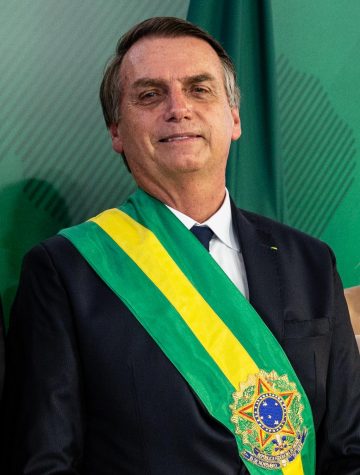
“Take the recent move by U.K. (Prime Minister) Boris Johnson to suspend Parliament as a threat to separation of powers,” said Ponicki. “Or Trump’s move to restrict immigration from some Muslim-dominated countries, or Hungary’s (Prime Minister Viktor) Orban’s zealous restriction of immigrants – both threats to minority rights and pluralism.”
She believes while the legacy of colonialism is strong in developing Latin America, Bolsonaro’s sovereignty argument is compromised by his actions to open the Amazon’s resources to both domestic and foreign corporate interests. She points to Bolsonaro’s cutbacks in environmental staff, political interference and regulation rollbacks as evidence of his agenda.
Trump did not support the G-7 aid, saying the solution to the fires is Brazil’s domestic responsibility.
According to the BBC, environmentalists have shown concern since Bolsonaro slashed funding for his environmental agency by 95%. The Amazon absorbs 2.2 billion tons of carbon dioxide annually and is home to more than half the world’s species of plants and animals. Protecting the forest is crucial for mitigating global warming.
Data published by Brazil’s space agency shows forest fires increased 77% compared to last year, with more than 83,000 fires having already scorched the forest. Similar fires are documented in President Evo Morales’ Bolivia, where, like Brazil, the government has not initiated economic alternatives for people to take advantage of the rainforest without exploiting and damaging it.
Ferfoglia explained while the liberal Workers Party was in office under former President Lula da Silva, programs designed to bring healthcare, education and employment to lower-income citizens were enacted. Lula and his successor Dilma Rousseff are currently imprisoned under charges supporters say are politically motivated.
“With globalization and social media, people were positioned against each other,” said Ferfoglia. “People would often not even talk to each other because of their political beliefs. The middle and upper-class felt Lula’s programs didn’t affect them, so Bolsonaro became the face to bring them back power.
“He was blaming all the problems in the country on the Workers Party. He made the argument, if you are against corruption then you must vote for him. However, he and his political family are incredibly corrupt themselves.”
Ferfoglia believes Bolsonaro’s, like Trump’s, perceived racist and sexist statements helped draw him support among the nation’s social conservatives.
Ponicki said the implications of electing a leader like Bolsonaro resonate throughout society.
“He presents a danger not only to the Amazon, but also to women, those who don’t share his opinions, indigenous and Afro-Brazilians and the LGBTQ community,” said Ponicki. “He said the children of families receiving welfare support via the Bolsa Familiar program had inferior intellectual development. Recent news warned that federal universities risk shutting down because of a lack of funds. Activists who differ in political perspective than Bolsonaro have been imprisoned.”
She believes a populist preys on people’s fears, often labeling scapegoats, such as immigrants, as enemies to people’s well-being.
“People are tired of corruption, feel disengaged from the system and that globalization has left them behind,” said Ponicki. “Enter a populist to stoke all those fears. (People) tend to vote emotionally rather than based on solid policy proposals.”
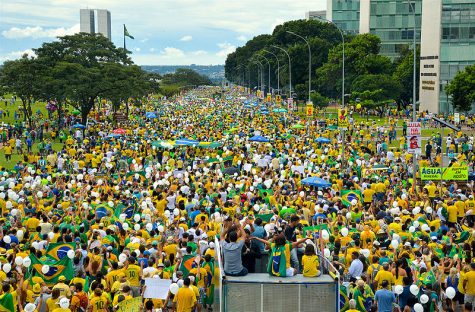
Ponicki said many believe Bolsonaro’s rise symbolizes the angst of white men who see the expansion of social rights as a threat to their historical power. Because of Brazil’s ingrained divisions and marked inequality, moves of social progression are followed by oppressive periods like the current clampdown on women’s and LGBTQ rights in Brazil.
Ferfoglia said economic disparity in Brazil can be charted out by region and race.
“Because Sao Paulo is richer than the north, people used to migrate searching for work,” said Ferfoglia. These workers all voted for Lula because his programs provided opportunity for them. Most Brazilians don’t believe racism is a thing, however, Brazil was one of the last countries to eliminate slavery. Whenever there are police operations in the favelas to fight crime, it’s to fight black people. Bolsonaro has talked about giving police more free-license to kill.
While campaigning, Bolsonaro preached, “A policeman who doesn’t kill, isn’t a policeman.” He pledged to reduce crime and drug trafficking by eliminating most of the nation’s gun laws.
Bolsonaro has called political correctness a thing of leftist radicals. He has garnered publicity with statements like, “I’d prefer (to see) a son of mine die in an accident than (to be) a homosexual,” and saying a lawmaker was not worth raping because she was “very ugly.” He has also stated women should not be hired because they get more labor rights than men.
Ferfoglia believes media publicity played a giant role in getting Bolsonaro elected.
“A lot of his voters’ support can be attributed to the nation’s fake news,” said Ferfoglia. “WhatsApp is very big in Brazil. Groups and algorithms sent fake news, and people never check their sources. So they continue spreading the fake messages. His supporters came from all over society. A lot of the controversial things he says, people believe deep down.”
Ponicki said populists often use their rhetoric and hold on the media to demonize certain groups.
“(An) aspect of a populist’s power is their ability to influence public discourse,” said Ponicki. “The dangers of allowing racist and xenophobic thoughts and words have been a common topic since Trump took the presidency.
“Trump caters to those fears of economic insecurity. What many political scientists are discussing is how a populist such as Trump preys on those fears and labels an enemy – immigrants for example. (With) the changing demographics of the U.S. (there is) a very real undercurrent of racism and sexism that holds more hearts than people might have realized.”
Ponicki said electoral reforms are crucial to reduce polarization, along with reducing routes for dark money contributions that fuel populism and a shared societal commitment to protect the democratic norms our government is founded upon.
At a tenuous time for international cooperation, Macron said France would hold off the massive European Union – South America (Mercosur) trade deal unless Brazil makes a commitment to fight the Amazon fires.
Populist leaders like Bolsonaro have watched the Trump administration pull out of multilateral deals like the Iran nuke deal and the Paris Climate Agreement. Bolsonaro himself has threatened to pull Brazil out of the Paris Climate Agreement.
Ferfoglia said opposition figures used to be just those on the left but now represent anyone upset with his racism and policies that hurt the democracy.
“I want a good government for my country, but if he accomplishes everything he’s promising, then it’s a terrible scenario for Brazil,” said Ferfoglia. “With the threats to the social progress that’s been made, you cannot just sit back and be passive with everything that’s happening.”

